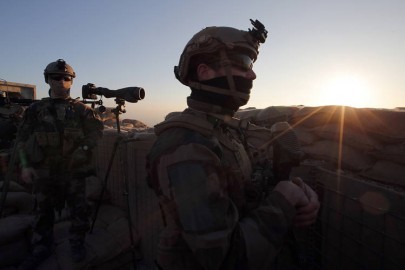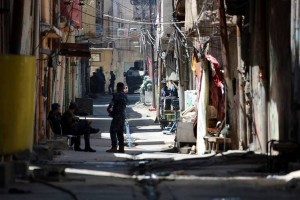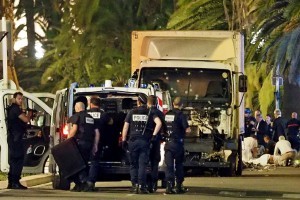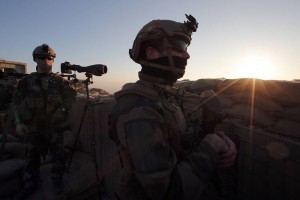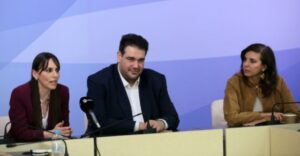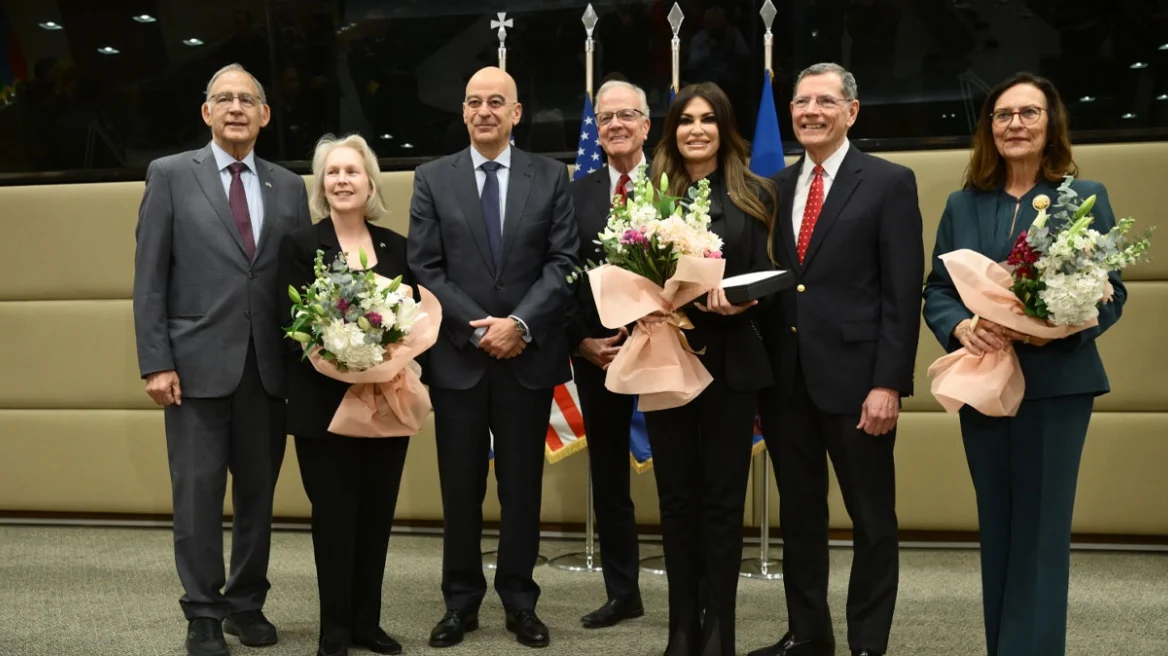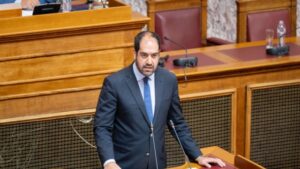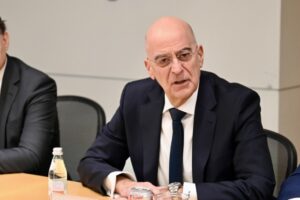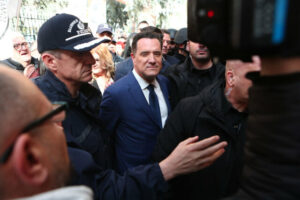French special forces have for months enlisted Iraqi soldiers to hunt and kill French nationals who have joined the senior ranks of Islamic State, according to Iraqi officers and current and former French officials.
Iraqi commanders leading the fight for Mosul said French special forces have provided to Iraqi counterterrorism troops the names and photographs of as many as 30 men identified as high-value targets. An undisclosed number of French citizens have been killed by Iraqi artillery and ground forces, the commanders said, using location coordinates and other intelligence supplied by the French.
The motive for the secret operation is to ensure that French nationals with allegiance to Islamic State never return home to threaten France with a terror attack, said a current and a former foreign-affairs adviser to the French government. France has been the target of several deadly attacks either inspired by Islamic State or orchestrated from the militants’ Middle East strongholds, including the November 2015 Paris strikes.
A French Ministry of Defense spokeswoman declined to comment on the operation. “French forces work in close cooperation with their Iraqi and international partners,” she said, to fight jihadists, “regardless of national origin,” referring to the 1,200 French troops assisting Iraqi forces to retake Mosul.
The French special forces maintain their distance from the killings—France has no death penalty—by directing Iraqi fighters to target French Islamic State fighters, according to the current and former French government advisers.
A senior Iraqi police official showed The Wall Street Journal a list of names of 27 suspected Islamic State members sought by France, accompanied by photos of five of the men. French special forces began circulating the document at the start of the Mosul offensive last year. It is updated as men are killed, the police official said.
One man was identified on the list as “Badush,” and the document described him as last seen in July driving a white Kia in northern Mosul, wearing traditional Iraqi clothing. Several of the names included aliases that linked the men to France— Abu Ismael al-Fransi and Abu Souleyman al-Fransi —or to Belgium, where some of the Paris attackers were from. Belgium’s Defense Ministry declined to comment.
France doesn’t have armed drones, so government officials sent its elite forces into Mosul to locate French militants, a Western security official said.
About 40 French special forces operate state-of-the-art intelligence-gathering tools, such as surveillance drones and radio interception devices, to help locate militants, said senior Iraqi counterterrorism officers and former and current French government officials.
“They are dealing with them here, because they don’t want to deal with them at home,” said a senior Iraqi counterterrorism officer directly involved in coordinating with the French special forces. “It’s their duty. It’s common sense. The most lethal attacks overseas were in France.”
Iraqi government officials said their military doesn’t participate in systematic extrajudicial killing of Islamic State fighters, and any such cases would be investigated for possible prosecution.
A spokesman for Iraq’s Justice Ministry declined to say whether the government has any foreign Islamic State fighters in custody. Iraqi commanders have said most militants fight to the death.
“If anyone is alive, in jail, because they surrendered, they will be executed in Iraq for joining Islamic State. And France won’t intervene,” said a current French official familiar with the matter. “It’s a convenient solution.”
An estimated 1,700 Frenchmen have joined the militants in Iraq and Syria, according to the Soufan Group, a New York-based organization that researches extremism. French government officials have estimated that hundreds of those men have either died in battle or returned home.
Other Western countries have lists of their nationals in league with Islamic State. But only France is engaged in hunting them in Mosul, Iraqi officers said.
France debated the legality of targeting its citizens when it joined the U.S. bombing campaign in Syria in the fall of 2015. An October airstrike that year apparently killed French militants near Raqqa, and the government sought to tamp down criticism at home by citing a provision in the United Nations charter that allows member states to use any means of “legitimate defense” if under attack.
France’s laws and constitution offer little protection to citizens who take up arms with militant groups to fight the government, said Michel Verpeaux, a professor of constitutional law at the Université Panthéon-Sorbonne in Paris.
“The French are fighting not a state but an armed group,” Mr. Verpeaux said. “It’s a highly uncertain situation with few legal rules.”
France has talked about stripping nationals of citizenship for joining terror groups to bar their return home, as the U.K. has, a proposal that met stiff resistance in parliament.
Dozens of French nationals fighting with Islamic State have been killed in the battle for Mosul, two Iraqi officers said. The seven-month offensive by Iraqi forces and international allies is close to driving the remaining Islamic State fighters from the western part of Mosul, the militants’ last major holding in Iraq.
French special forces often move through Mosul without Iraqi military partners. They search homes abandoned by foreign militants, as well as command centers in search of physical evidence or documents that link their citizens to Islamic State, two senior Iraqi counterterrorism officers said.
In April, French special forces swept through a medical clinic near the Mosul University campus, checking the identities of the wounded against their list of French nationals working for Islamic State. The French forces, often wearing Iraqi uniforms and driving vehicles with Iraqi military logos, are particularly concerned about any chemical-weapons specialists working on the campus, according to a senior Iraqi commander who coordinated with French forces.
Mosul University was used by Islamic State as a command center until Iraqi forces recaptured the campus in January, the Iraqi commander said.
The French special forces have a forensics team that collects physical evidence—tissue and bone from the dead and wounded, as well as discarded drinking cups and utensils—to find DNA matches with the men on their wanted list, Iraqi and French officials said.
The team in one instance collected bone samples from a dead fighter and ran the DNA collected through a database to compare with the DNA of French nationals suspected of joining Islamic State, according to the former foreign-affairs adviser to the French government.
A team of four French special forces went door to door in the neighborhood in January. Two of the soldiers checked the identities of residents while the other two men stood guard. “They have their own targets,” an Iraqi counterterrorism officer said as he passed the scene.
French special forces have recently focused on Republic Hospital, a large complex in Mosul’s Old City, according to two Iraqi Army officers who worked with them. The Old City, a warren of densely populated streets and alleys, is a commercial center and the last district in Mosul controlled by militants.
The French forces suspect that the remaining high-level Islamic State commanders, including some Frenchmen, are holed up at the hospital.
Ask me anything
Explore related questions
